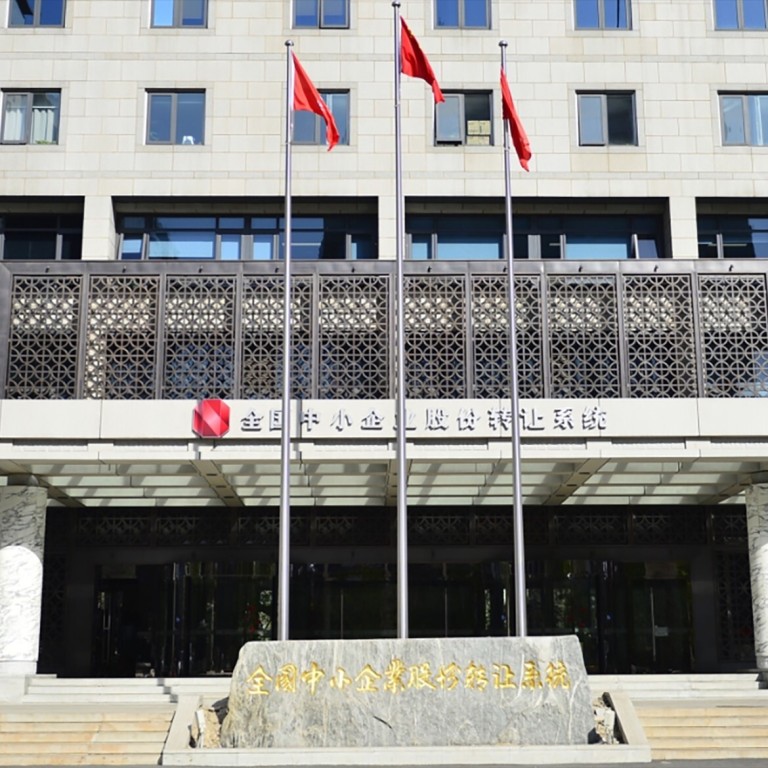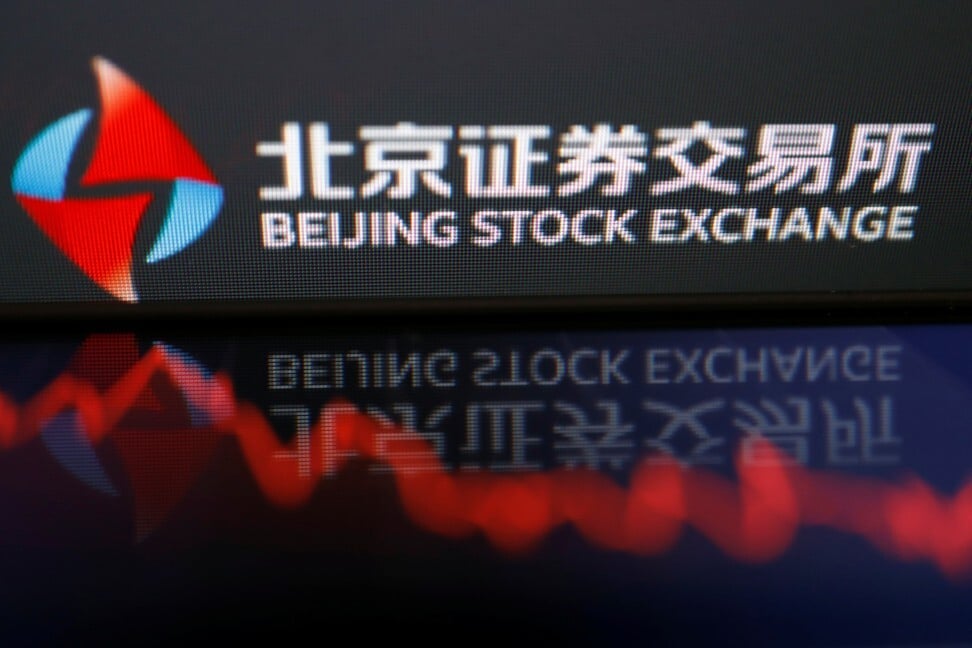
Beijing Stock Exchange: three of four debuts soar in financial market created to extend financial lifeline to small companies
- Sixty stocks rose at open in Beijing exchange debut, with gains ranging from 0.2 per cent to almost 500 per cent, before the rally faded at the close
- Small-caps are no longer a scarcity and their valuations will be reassessed, analyst says
Sixty of the stocks advanced by between 0.2 per cent and almost 500 per cent when trading commenced, before the rally faded at the close of market. Shares of Henan Tongxi Transmission, a maker of transmission shafts and other vehicle parts, jumped 494 per cent as the best performer, while Tonghuijiashi (Beijing) Information Technology was the worst with a 16 per cent loss.
At Monday’s close, 19 companies closed higher, 59 ended lower while three were halted.
Seventy-one of the debutantes were transferred from an over-the-counter market in the Chinese capital known as the National Equities Exchange & Quotations, or NEEQ, which had struggled to attract investors since its formation in 2012 because of the lack of liquidity. Ten stocks traded for the first time.
Still, the spruced up Beijing exchange – which came into operation two months after President Xi Jinping ordered its establishment – is an attempt at handing a financial lifeline to help the private sector and innovative companies raise capital.
The creation marks another milestone in the expansion of China’s US$12.4 trillion equity market, already the world’s largest after the US market. It adds to the bourses in Shanghai and Shenzhen, which were established in 1990 as a test of China’s economic reforms.
The boom in Beijing came at the expense of the Shanghai and Shenzhen exchanges. Two benchmark gauges that track small-cap stocks on the Star Market and ChiNext board declined by more than 0.5 per cent on concern about a glut of these small companies.
“Smaller companies aren’t a scarcity any more, so their valuations are expected to be reset,” said Wei Wei, an analyst at Ping An Securities. “Investing in the companies on the Beijing exchange needs to be a selective basis to pick up those with big growth potential and competitive edges.”

The Beijing bourse had a precursor in a short-lived market place established in 1918 for trading government bonds, which went into decline with the relocation of the Kuomintang-controlled government to Nanjing nine years later, completely shutting with the outbreak of the Second World War.
At a ceremony marking the birth of the new exchange, the China Securities Regulatory Commission’s chairman Yi Huiman said the new exchange has a significant role to play in pushing for innovation and transformation of smaller companies.

About four million investors – those who have at least 500,000 yuan in assets in stock accounts – are eligible to trade shares on the Beijing exchange as of now, according to the bourse. Qualified foreign institutional investors (QFIIs) and approved overseas traders holding the offshore yuan can also buy and sell stocks on the Beijing exchange, it said. About 85 per cent of these listings are private enterprises, while the rest are partly state-owned entities.
It will take two months to handle listing applications, compared with three months for Shanghai’s Star Market. Its 30 per cent daily cap on stock movement is more flexible than the 20 per cent allowed on the Star Market and 10 per cent for main board companies in Shanghai and Shenzhen.
“Setting up the new exchange can help improve confidence in the development of [smaller companies] and innovation,” said Chris Liu, a portfolio manager at Invesco. “It also helps reduce the economy’s reliance on bank borrowing and high leverage ratio.”


